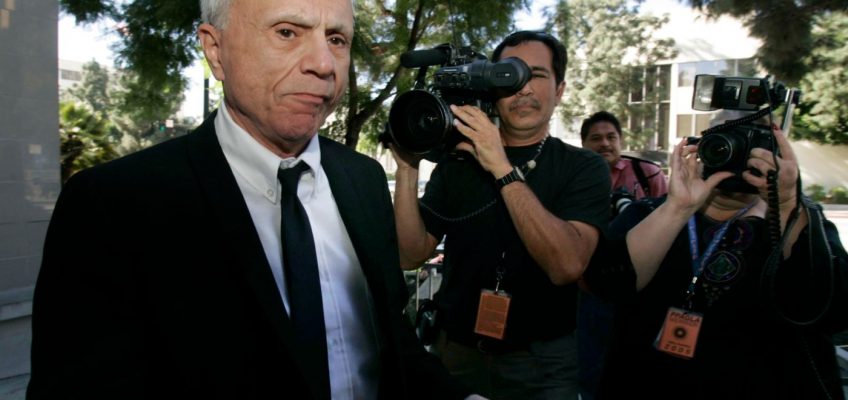By AAMER MADHANI, Associated Press
WASHINGTON (AP) — President Donald Trump is set to fete Crown Prince Mohammed bin Salman on Tuesday when the de facto leader of Saudi Arabia makes his first White House visit since the 2018 killing of Washington Post journalist Jamal Khashoggi by Saudi agents.
The U.S.-Saudi relationship had been sent into a tailspin by the operation targeting Khashoggi, a fierce critic of the kingdom, that U.S. intelligence agencies later determined Prince Mohammed likely directed the agents to carry out.
But seven years later, the dark clouds over the relationship have been cleared away. And Trump has tightened his embrace of the 40-year-old crown prince he views as an indispensable player in shaping the Middle East in the decades to come. Prince Mohammed, for his part, denies involvement in the killing of Khashoggi, a Saudi citizen and Virginia resident.
Khashoggi will likely be an afterthought as the two leaders unveil billions of dollars in deals and huddle with aides to discuss the tricky path ahead in a volatile Middle East. They’ll end their day with an evening White House soiree, organized by first lady Melania Trump, to honor the prince.
“They have been a great ally,” Trump said of the Saudis on the eve of the visit.
Fighter jets and business deals
Ahead of Prince Mohammed’s arrival, Trump announced he has agreed to sell the Saudis F-35 fighter jets despite some concerns within the administration that the sale could lead to China gaining access to the U.S. technology behind the advanced weapon system.
Trump’s announcement is also surprising because some in the Republican administration have been wary about upsetting Israel’s qualitative military edge over its neighbors, especially at a time when Trump is depending on Israeli support for the success of his Gaza peace plan.
Related Articles
Trump administration sues California over law banning masked federal agents
Trump leaves military action against Venezuela on the table but floats possible talks
EPA moves to limit scope of clean water law to reduce amount of wetlands it covers
Homeland Security agents make arrest dozens in North Carolina’s largest city. Here’s what to know
President Donald Trump unveils ‘FIFA Pass’ to help World Cup travelers get their visas faster
But the unexpected move comes at a moment when Trump is trying to nudge the Saudis toward normalizing relations with Israel.
The president in his first term had helped forge commercial and diplomatic ties between Israel and Bahrain, Morocco and the United Arab Emirates through an effort dubbed the Abraham Accords.
Trump sees expansion of the accords as essential to his broader efforts to build stability in the Middle East after the two-year Israel-Hamas war in Gaza.
And getting Saudi Arabia — the largest Arab economy and the birthplace of Islam — to sign on would create an enormous domino effect, he argues. The president in recent weeks has even predicted that once Saudi Arabia signs on to the accords, “everybody” in the Arab world “goes in.”
But the Saudis have maintained that a clear path toward Palestinian statehood must first be established before normalizing relations with Israel can be considered. The Israelis, meanwhile, remain steadfastly opposed to the creation of a Palestinian state.
The U.N. Security Council on Monday approved a U.S. plan for Gaza that authorizes an international stabilization force to provide security in the devastated territory and envisions a possible future path to an independent Palestinian state.
Assurances on US military support
The leaders certainly will have plenty to talk about including maintaining the fragile ceasefire in Gaza, mutual concerns about Iran’s malign behavior, and a brutal civil war in Sudan.
And the Saudis are looking to receive formal assurances from Trump defining the scope of U.S. military protection for the kingdom, even though anything not ratified by Congress can be undone by the next president.
Prince Mohammed, 40, who has stayed away from the West after the Khashoggi killing, is also looking to reestablish his position as a global player and a leader determined to diversify the Saudi economy away from oil by investing in sectors like mining, technology and tourism.
To that end, Saudi Arabia is expected to announce a multi-billion dollar investment in U.S. artificial intelligence infrastructure, and the two countries will lay out details about new cooperation in the civil nuclear energy sector, according to a senior Trump administration official who was not authorized to comment publicly ahead of the formal announcement.
“I think the challenge for us as Americans is to try to convince someone like MBS that the trajectory of Saudi Arabia ought to look more like South Korea than, say, China,” said Bernard Haykel, a professor of Near Eastern Studies at Princeton University, speaking at a Carnegie Endowment for International Peace event on Monday. “That, ultimately, political repression of political dissent is not good for business. It’s not good for attracting foreign direct investment, it’s not good for your image if you’re a tourism destination.”
But this week’s warm embrace by Trump might provide a counterfactual to that argument for the crown prince.
In addition to White House pomp, the two nations are also planning an investment summit at the Kennedy Center on Wednesday that will include the heads of Salesforce, Qualcomm, Pfizer, the Cleveland Clinic, Chevron and Aramco, Saudi Arabia’s national oil and natural gas company, where even more deals with the Saudis could be announced.
AP writer Josh Boak contributed to this report.




